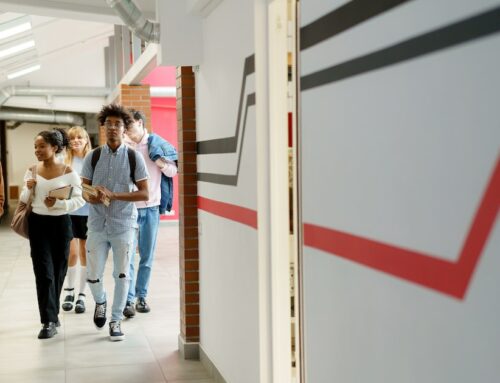One of the difficulties that children, adolescents and young people encounter at different stages of schooling is the dreaded work presentations. Teaching them how to deal with this can have a big impact on their school life. And, it is known that one of the main determinants of professional success in the future is related to this good performance. Therefore, we have selected some tips to help your child when presenting work. Check out!
Help him concentrate
Teach your child to focus. Younger generations tend to share their attention with several elements at the same time, such as cell phones. To avoid this, motivate them to do tasks away from television and the internet and at quiet times with minimal distractions around them. But it shouldn’t be a form of punishment, you need to make them understand that the more time is spent working without actually producing, the longer the task will take to complete.
Show ways to search for information
Students usually write down the content for later reference, but it is always possible to deepen their knowledge by seeking other sources, such as books and reliable websites. You can present search tools, websites with specialized content and help you find what you need. As a result, students see the real objective of the work more clearly and are close to achieving higher grades.
Guide them about plagiarism
The famous Ctrl C and Ctrl V have serious consequences, so it is necessary to guide children about plagiarism, explaining the differences between citations and copies and making the possible consequences and implications completely clear. Make them understand that it is necessary to mention where the source of the information came from, as plagiarism is not only a crime but also does not help anything in terms of learning, in addition to being easily detected by the teacher.
Clarify doubts, but don’t do the work for them
During the preparation of the work, the student may have doubts, for example, about the concept or the way of presenting the information. Whatever the question, it is important to keep in mind that it is the student who needs to learn the content for the presentation. Therefore, the role of parents is to motivate, support and guide, but you should never do the work for them, no matter how difficult it may seem. In addition to going against the proposed objective, it harms their ability to face obstacles and discover skills.
Show the importance of spelling
Not only during preparation for the presentation of a work, but also after its completion, it is necessary to pay attention to language and writing. This is because grammatical, concordance, spelling and even typing errors end up making it difficult for the reader to understand. To avoid problems like this, suggest reviewing the content until it is adequate. The last review can even be done out loud, thus helping to identify errors more easily.
Present the advantages of the organization
When presenting a work, you need to worry about elements beyond the content itself. The way it is presented makes all the difference, from the choice of font, to the alignment of words, to colors and images. Ideally, the text should be standardized. In fact, no one likes to turn concise ideas into a carnival of information.
Help him select information and divide it
After gathering everything he needs, your child will need discipline to understand how to divide this content. In general, it must contain an introduction, the development – which will contain the arguments and ideas – and the conclusion. Don’t forget to encourage them to indicate sources at the end of the work.
Value different opinions
It is important that the student, parents or even friends can read the work once it is finished. After all, another point of view usually helps a lot, allowing the content to be improved. Some details can be noticed by an outsider and they can make a big difference.
Help him deal with fear and anxiety
Have you ever felt blank when presenting something? In times of stress, this is normal. Intimidation, shame and fear of disapproval contribute to this effect. Therefore, help them at this stage, showing breathing techniques to stay calmer and deal with pressure.
The importance of feedback
Once the task is completed, you can encourage the student to ask the teacher for feedback to understand what was good and the points that could be improved. The grade he gets may be high, but a professional’s eye can help point out elements for improvement. When they reach adulthood, your child will possibly deal better with the opinions of others and will have more confidence in themselves.





